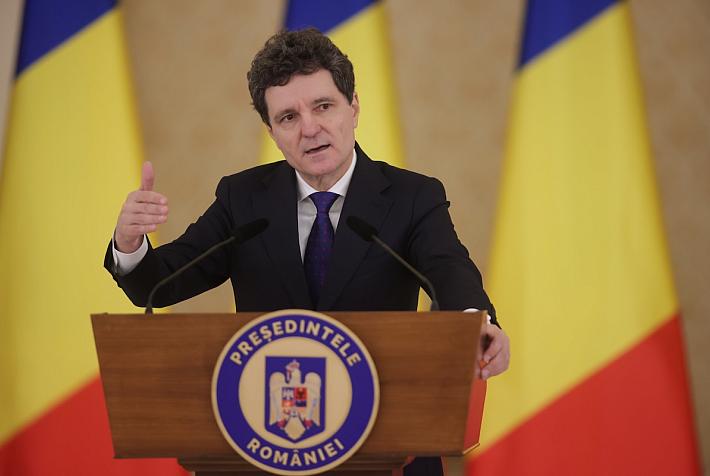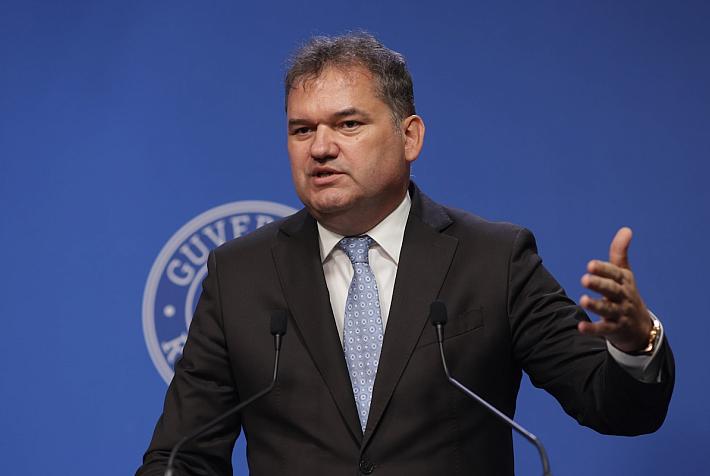Comment: Romanians and the stock market - taking charge of financial freedom

Imagine two countries the size of Romania, where nobody has to work on a daily basis. Where people are financially free and where their money works for them while they do something else: gardening, traveling, reading, you name it.
It’s not (just) a dream, though it sounds like one, it’s just another way of putting facts: about 42 million people in the world actually have financial freedom, which broadly means their capital works for them, one way or the other. That’s 0.6 percent of the world’s population. The rest are mostly struggling from one month to the other, and are always tied to a job, or to another recurring activity they have to perform to survive.
Most people ask themselves how they could ever achieve that, and they spiral down on negative thinking. Yes, you need to have some money to make money, it will never be work-free, and you have to be disciplined.
This is what Romanian investors into the stock market have started to learn, on their path to financial freedom. What is negative thinking for some, has turned into positive lessons on their path to personal growth for others.
A women in her early 40s, who works in a bank and who started to invest in Romanian stocks three years ago, admits during an investors meeting that she has learned how to save money and how to be financially disciplined quite late in her life. Now she has a EUR 15,000 portfolio of stocks, and wants to learn more about investing wisely on the capital market.
A young man, dressed in a slick costume, started investing two years ago by buying shares in Fondul Proprietatea, the largest investment fund in Romania. He’s not afraid to say that most of his friends believe he’s gambling his money away, and are scared of investing on the stock market themselves. He too wants to learn more about capital market opportunities for investors like himself.
A young programmer – one of Romania’s main export ‘merchandises’, and one of the young people who make good money nowadays – too wants to see developments, new tools and products that keep up with today's world, and to learn what the market has to offer.
Contrary to what many believe, Romanians do have money; the problem is, many of them don’t know what to do with their money, and place them purely into consumption. Instant gratification at work.
But a generation of young Romanians has started to take on the taste of investments, including on the capital market: young people who make enough money, who are financially disciplined enough to put aside money for investments and who timidly enter the market.
However, only 85,000 Romanian individuals are currently investing on the stock market. That is just 0.4 percent of the country’s population. So investing on the stock market is not yet very popular among Romanians. In more developed countries, the ratio of stock market investors into the population is higher. For example, in Poland, there are 1.5 million individual investors on the capital market, about 4 percent of the country's population.
But it’s not necessarily always the more, the merrier: in late 90s, for example, a problem in China was to deter people from investing on the stock market. Back then, 90 percent of the transactions was made by individuals, who were highly speculative and erratic, and made the market much too volatile.
There were also counter – effects elsewhere, especially when bubbles burst: investing on the stock market was a ‘national sport’ in Greece in the 2000s, when a quarter of the population held stocks; but the bubble came and lots of people lost their money, which deterred them (and others) from ever investing again.
For the average investor, it is still not easy still to invest on the stock market in Romania. Initial Public Offerings (IPO), which are good opportunities to invest and when usually new investors can be attracted, are hard to digest for many: 400-page or so of IPO prospectus to be read, lots of information to be understood before placing one’s money.
But as the stock market management and brokers are trying to attract more Romanians to the market, they also start offering more information to potential investors, and fight for getting more rights for them, as they see demand from individual investors growing (see the latest results of the Electrica IPO).
The Bucharest Stock Exchange, with Polish Ludwik Soboleski at its helm, recently started a series of conferences for retail investors, and drafted a set of measures aimed at making it easier to invest in Romania. They hope these will help create momentum and push the market one step forward.
Brokers too are trying to educate potential investors, starting from the psychological mechanics of investing: how much are you willing to lose, over what period of time, when do you want to have your money? How much do you spend, and how much do you put aside for investments?
These are essential questions most Romanians never asked themselves. Financial education is not yet among priorities here in Romania, and it is not part of the local culture. Many people learn basic financial lessons the hard way, and late in life. As that begins to change, and as important financial lessons are passed on to new generations of Romanians, perhaps more people will be drawn to the stock markets, and to investing wisely into their future.
By Corina Chirileasa, corina@romania-insider.com











